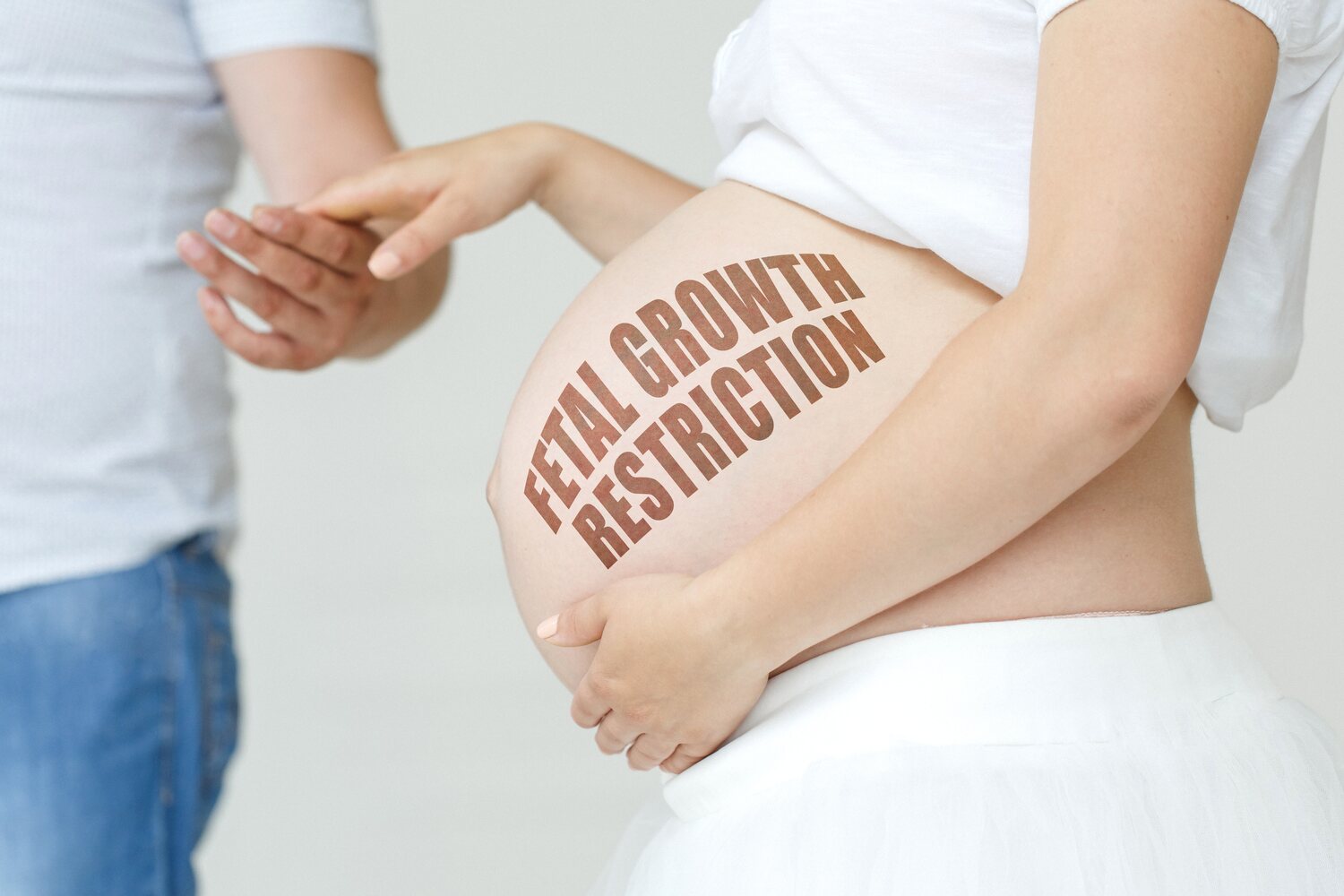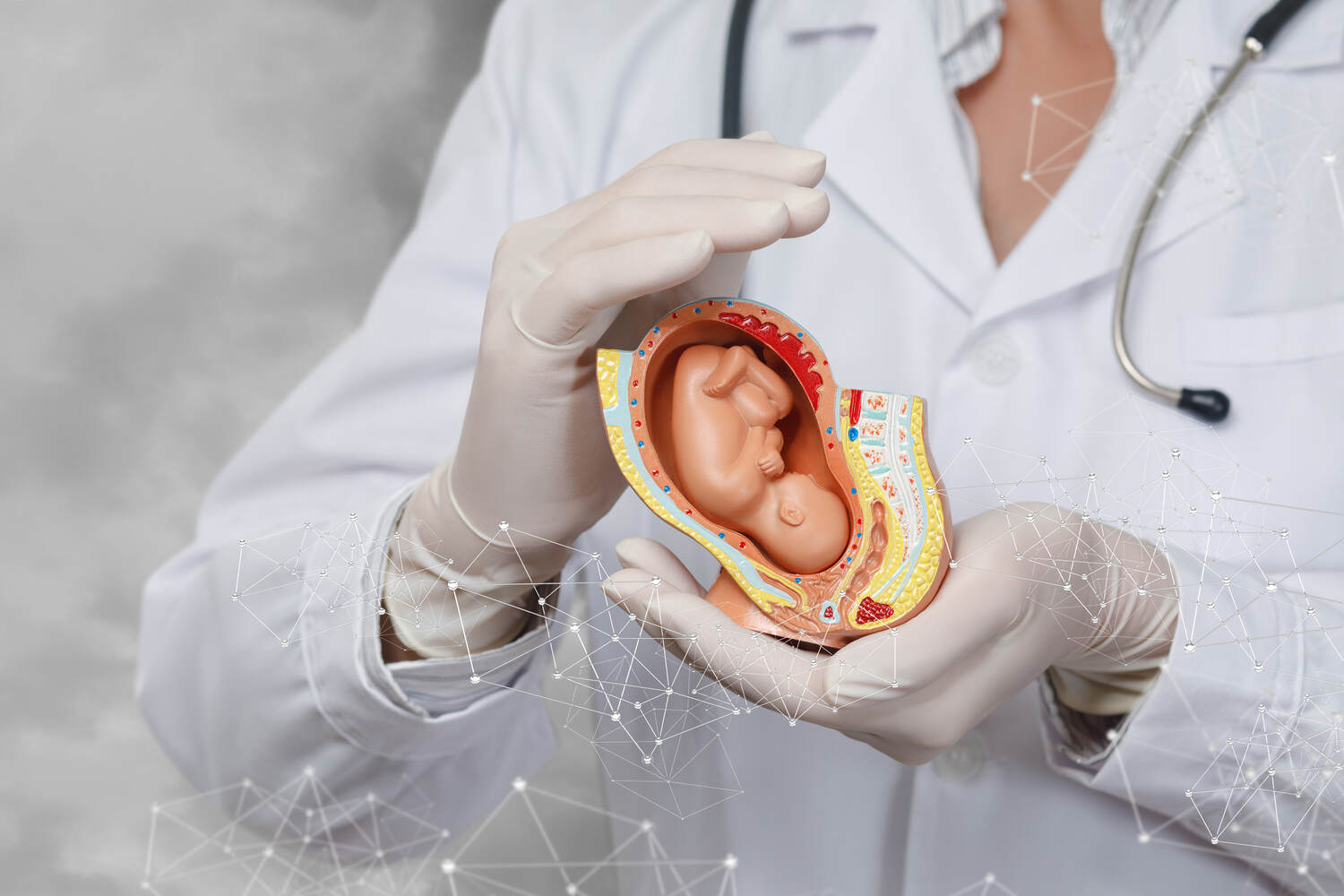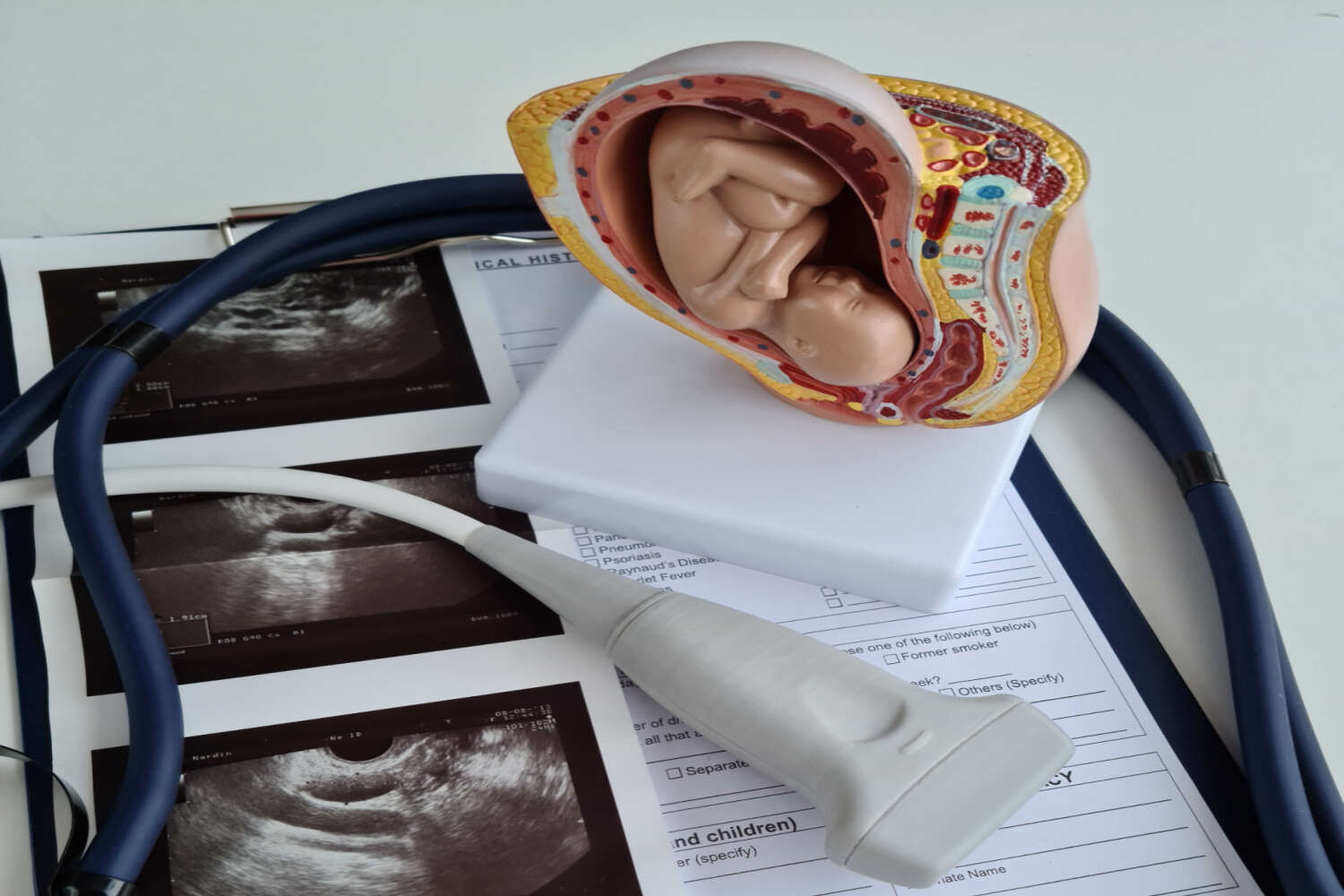
In the amazing world of babies growing inside moms, there’s something called Fetal Growth Restriction (FGR). It’s like having a little superhero or Superwoman baby who decides to be smaller than what the pregnancy rulebook suggests. Picture a rebel baby in the womb causing a bit of chaos by not following the regular size chart. But guess what? – not all tiny babies are troublemakers; some are just born to be adorably compact!
This article is here to make Fetal Growth Restriction less confusing. We’ll chat about why it happens, what it means, and how to take care of these super cool little babies who might be smaller but are still strong and awesome. Let’s dive into the world of small wonders!
In This Article
- What Is Fetal Growth Restriction?
- Different Types of IUGRs During Pregnancy
- Reasons For Restricted Growth of Fetus During Pregnancy
- Are There Any Associated Risks With IUGR?
- How Is Fetal Growth Restriction Diagnosed?
- How Is IUGR Managed?
- How To Prevent IUGR?
- What Are The Treatment Options For IUGR?
- When To See A Doctor?
- FAQ’s
What Is Fetal Growth Restriction?
Fetal growth restriction (FGR) affects 3% to 7% of pregnancies, defined as when a fetus doesn’t reach its genetic growth potential. Diagnosis involves ultrasonography-estimated fetal weight below the 10th percentile for a specific gestational age. FGR occurs when an unborn baby is smaller than expected, typically below the 10th percentile in estimated weight, impacting overall size and organ development throughout pregnancy. While FGR may lead to various issues, not all small newborns necessarily face complications, as some may naturally be small without problems [1].
Different Types of IUGRs During Pregnancy

Let’s talk about the types of Intrauterine Growth Restriction (IUGR) during pregnancy, with each type unfolding its distinct narrative. Understanding these differences is essential for taking care of both the baby and the mom-to-be [1].
IUGR comes in two types:
- Symmetric or Primary IUGR: This type involves a uniform reduction in the size of all internal organs. It makes up around 20–30% of all IUGR cases.
- Asymmetric or Secondary IUGR: Here, the head and brain remain normal, but the belly is smaller. You usually notice this in the third trimester of pregnancy. It makes up around 70–80% of all IUGR cases.
Reasons For Restricted Growth of Fetus During Pregnancy
Investigating the causative factors behind the restricted growth of the fetus during pregnancy is an essential endeavor. This exploration serves as a foundation for informed decision-making and proactive measures, crucial for ensuring the optimal well-being of both the baby and the mother [1, 2]. Pregnancy complications, including poor placental attachment and limited blood flow through the umbilical cord, can impede the vital roles of the placenta and the umbilical cord in providing essential nutrients and oxygen to the developing baby.
Factors Increasing FGR Risks:
- Multiple pregnancies (twins or triplets)
- Expecting a baby with a genetic disorder or birth defect
- Conditions like high blood pressure/heart issues, diabetes
- Anemia
- Persistent lung or kidney problems
- Autoimmune conditions (like lupus)
- Extreme weight (very low or excessive)
- Poor nutrition or weight changes
- Cigarette / Alcohol/drug use
Are There Any Associated Risks With IUGR?

When a baby has Intrauterine Growth Restriction (IUGR), they’re at a higher risk of coming out earlier than expected [Pre-term baby ]. Early arrivals can bring some challenges for the little one, like trouble with the belly (necrotizing enterocolitis), low Apgar scores, and a bit of a challenge with breathing. These tiny fighters might need some extra help in the neonatal intensive care unit (NICU) [3]. But here’s the good news – with careful medical attention, we can tackle these challenges head-on.
How Is Fetal Growth Restriction Diagnosed?
Diagnosing fetal growth restriction involves a combination of routine prenatal screenings and ultrasounds to monitor the baby’s growth. This careful assessment ensures timely intervention for the well-being of both the baby and the expectant mother.[4] [3]
- Accurate Pregnancy Dating: Utilize the first day of the last menstrual period (LMP) or early ultrasound.
- Fundal Height Measurement / Checking the Belly Size: Measuring how big the belly is. If it doesn’t match expectations, it could signal IUGR.
- Superstar Ultrasound: A peek inside with an ultrasound can reveal a baby’s size. If it’s smaller than expected, we need to keep an extra eye on things.
- Doppler Ultrasound: This special ultrasound checks blood flow to the baby. If it’s reduced, it might mean IUGR is at play.
How Is IUGR Managed?

The IUGR management plan is tailored to its seriousness, and assessed through ultrasound, Doppler ultrasound, risk factors, and weeks of gestation. Management may include [3]
- Increased Monitoring: Close surveillance through frequent ultrasounds and tests.
- Fetal Movement Tracking: Follow your provider’s instructions for monitoring the baby’s movements.
- Early Delivery or Emergency Cesarean: Depending on the severity and specific circumstances, an early induction of labor or emergency cesarean section may be recommended. Aimed at addressing fetal well-being and minimizing risks associated with FGR.
- Corticosteroid Medicine: Administration of corticosteroids to aid in fetal lung development.
How To Prevent IUGR?
Preventing Intrauterine Growth Restriction (IUGR) means focusing on a healthy diet, regular check-ups, and making positive lifestyle choices during pregnancy. Early identification and management of health issues also help reduce the risk of IUGR [2] :
- Avoid Risks: Don’t use drugs, alcohol, or cigarettes during pregnancy.
- Eat Well: Have a balanced and healthy diet.
- Gain Weight Steadily: Make sure you’re gaining a healthy amount of weight.
- Get Early Check-ups: Start prenatal care early.
- Regular check-ups: Regular check-ups with your doctor are important.
- Stay Informed: Learn about the risks of FGR. Understand how your choices can affect your baby.
- Act Promptly: If you’re worried or notice any issues, see your doctor right away.
What Are The Treatment Options For IUGR?

In cases of Intrauterine Growth Restriction (IUGR), timely and effective interventions are essential for the well-being of both the baby and the expectant mother. Treatment [4] options vary and may include close monitoring, lifestyle adjustments, or medical interventions depending on the severity of the condition.
Early-Onset Fetal Growth Restriction
Ensuring the health of your baby involves regular monitoring, Doppler studies to track the baby’s growth, comprehensive weekly checkups, potential hospitalization in severe cases, consultations with healthcare experts for guidance, administration of corticosteroids if early delivery is impending, and a customized delivery plan, including the consideration of a cesarean section based on individual conditions.
In Late-Onset Fetal Growth Restriction
Combining Doppler studies, regular checkups, and personalized delivery decisions based on individual factors are crucial for ensuring the best outcome for both the mother and the baby.
When To See A Doctor?

Recognizing the signs of fetal growth restriction (FGR) is crucial for ensuring the well-being of both the baby and the mother [2].
- During Pregnancy – Pay attention to your baby’s movements. If you notice reduced activity, promptly contact your doctor.
- After Birth – Keep an eye on your infant’s growth and development. If you observe any issues or have any concerns, promptly contact your doctor. Whether during pregnancy or after birth, don’t hesitate to reach out to your doctor.
So, wrapping up the IUGR story – it’s like a little twist in the pregnancy plot. Understanding and dealing with it is super important for both the baby and the mom. And guess what? Most of the time, it ends with your little one in your arms, wrapped in the warmth of that special, extra love.
FAQ’s
1. Is Growth Restriction A High-Risk Pregnancy?
Yes, it’s tagged as high-risk. Why? Because your little one isn’t growing as expected in your cozy womb. The baby might have plans for an early exit, be a bit light on the scales, or need a special entrance (hello, C-section!).
2. What Are The Long-Term Effects Of Fetal Growth Restriction?
Individuals who experience FGR may face a higher likelihood of developing conditions such as high blood pressure, elevated blood sugar, diabetes, obesity, and problems associated with the kidneys, lungs, and heart.
References
- Fetal Growth Restriction –
[https://www.ncbi.nlm.nih.gov/books/NBK562268/] - Intrauterine growth restriction –
[https://medlineplus.gov/ency/article/001500.htm] - Intrauterine Growth Restriction: Antenatal and Postnatal Aspects – [https://www.ncbi.nlm.nih.gov/pmc/articles/PMC4946587/]
- Guideline No. 442: Fetal Growth Restriction: Screening, Diagnosis, and Management in Singleton Pregnancies [https://www.sciencedirect.com/science/article/abs/pii/S1701216323003961]
